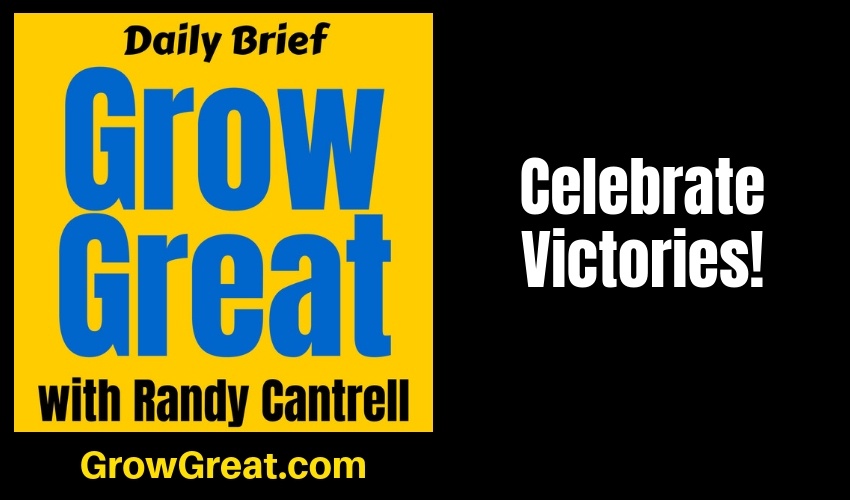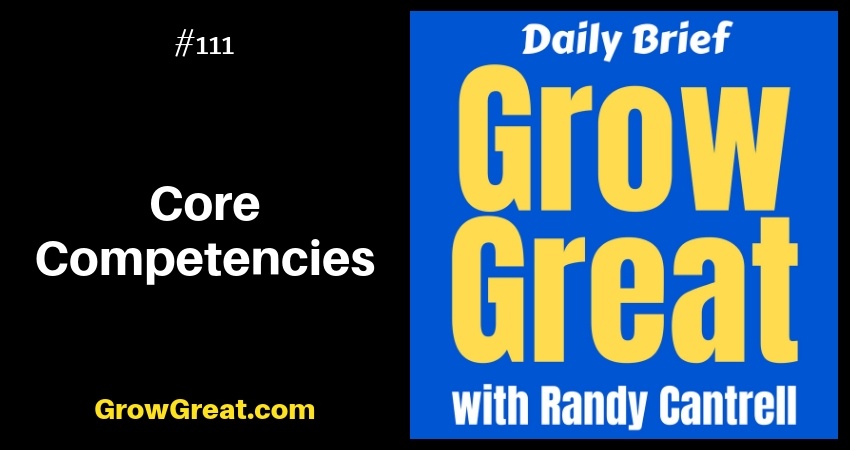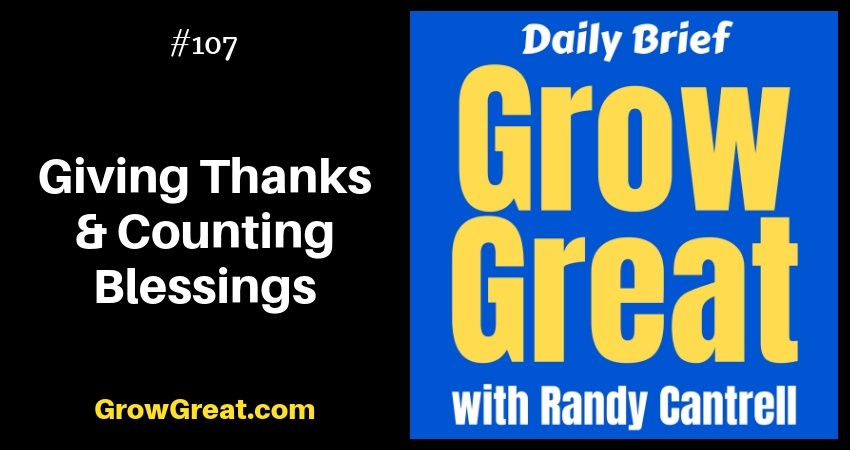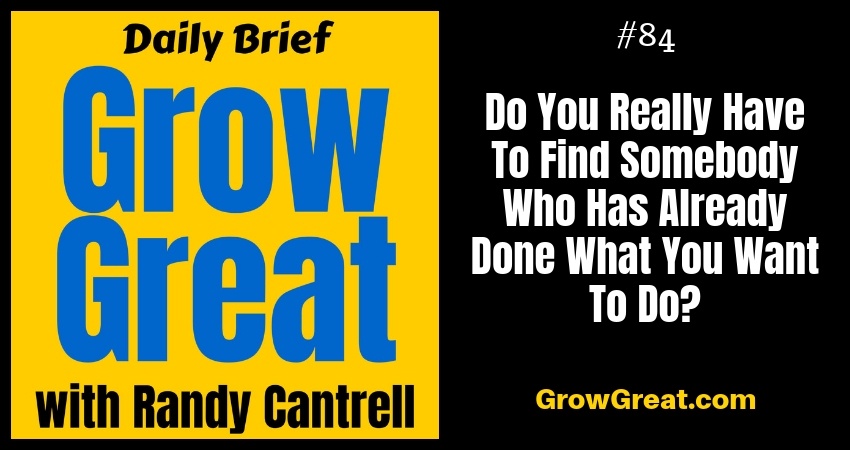Figuring Out What You Believe – Grow Great Daily Brief #205 – May 14, 2019
Podcast: Play in new window | Download (Duration: 9:20 — 11.2MB)
Subscribe: Apple Podcasts | Spotify | RSS | More
This week’s theme is self-awareness. I landed on this theme due to the many people I encounter who spend way too much time comparing themselves. It’s why I intentionally built the foundation last week focused on your mental health. Now we’re going to work at getting very real with ourselves. It’s not about who or what you want to become, it’s about who and what you are right now. Sure, we’re all subject to growth and improvement – which means we can change, but I want to push you to consider innate strengths, talents, and abilities. I also want you to think about your beliefs, convictions and character traits. It’s time to look deeply into the mirror.
Randy
Beliefs are tough to categorize. There are the beliefs you have which determine how you view the world and your place in it. These beliefs are how you see other people – and circumstances and events – and how you judge them (and I don’t mean “judge” in some critical fashion, but how you discern them). For example, some of us are optimistic and others not so much. That belief – whichever it may be – impacts how we go about life.
There are religious or spiritual beliefs. Even people who don’t believe in God or any higher power have a belief – and that’s their belief — that there is no God. Then there are those of us who do believe in God, so much so that we make that a priority in our lives. I’m unashamed that I fall into that camp. I confess knowing firsthand how much that impacts all my choices, decisions and behaviors (well, at least when I behave as I should). 😉
Then there’s the belief I’d like to start with today – the belief we have in ourselves.
Everybody believes in themselves. The question is, “What do you believe about yourself?” What do you believe in when it comes to YOU?
Confidence. That’s how most of us put our self-belief in context. But there’s more to it.
There are many more things that you believe about yourself that have nothing to do with confidence. Confidence is merely a catch-all that doesn’t catch it all.
We’ve all seen those infamous people of Walmart pics of people who actually leave their house and go shop at Walmart in some of the wildest outfits ever. All of us are thinking the same thing, “What were they thinking?” I can tell you. They thought, “This looks good.” At the very least they thought, “Yeah, this is fine.” Proof of their beliefs about their appearance.
How else can you explain all the duck lipping and other things that the collective knows looks bad, but many individual people still leave the house looking rather absurd? The obese lady in those yoga pants believes she looks good. She’s unaware that she looks like a tuna in a tube. We all know it, but her belief is what’s driving her behavior. It’s driving mine and yours, too.
The thing about self-belief is how prone we can be to get it wrong. Colossally wrong sometimes. Yet we believe it so it’s right. Well, a truer statement would be if we believe it, then it’s our reality.
Figuring out what you believe about yourself is required work if we’re committed to learning, understanding and growing. When I was younger I’d spend time trying to convince people of what I believed FOR (or about) them. Somebody would express some dream or idea. We’d bounce it around and I’d get excited because I could see it happening. I could see them succeeding at it. I’d grow frustrated knowing they didn’t believe in themselves or their idea as much as I did. It took me years to realize that it didn’t matter what I believed. What they believed was the only thing that mattered.
The backside of figuring it out includes changing it. That’s the real deal for most of us, but it’s impossible until we know what it is we’re changing. Discerning the status quo of what you believe is mandatory.
Enter a debate people sometimes want to engage with me.
“But what if you believe something that isn’t true about yourself?”
I say, “It depends.”
For instance, figuring out what you believe – especially about yourself – may be easier than you think. Look at your behavior. Look at your actions. Look at your choices.
Belief isn’t disconnected from actions. So back when I used to try to persuade or convince people they could do something – because I believed they could – I figured I might be able to influence them to take action they mostly never took.
That’s why last Friday’s episode was focused on changing how we feel by changing our actions. Guess what? It works. And it goes even deeper into helping us change our beliefs. Largely because we prove to ourselves new truths about ourselves.
Entrepreneurs, business owners, executives, and leaders make decisions. It’s what we do. Sometimes we do it well by getting it right. Other times we don’t do it so well because we get it wrong.
What do you do when you get it wrong? Berate yourself? How long do you dwell on it?
Recently I heard a young entrepreneur give some great advice about what should happen when things don’t go as planned, “Unhook it.” That instantly made sense to me. Unchain yourself from it and turn the page.
I’m a hockey fan. Here we are at the conference championship phase of the Stanley Cup playoffs. To win the Stanley Cup a team has to win 16 games. There are four rounds of playoffs, each round determined by the best of 7 (four victories mean you advance to the next round). It’s a grind for teams who play just about every other day. As you’d imagine momentum can shift quickly within a game or a series. And in a sport where one position is far more consequential to the outcome – the goaltenders – these players must have sports amnesia. That is, they have to unhook it when they give up a goal, or when they lose a game. Translation: Forget about it and move on.
I bring this up because I encounter too many leaders who live in the past. But it’s not restricted to losses or mistakes. It’s also true of wins or successes. We may falsely believe that we’re a superstar and thanks to our leadership, that success happened.
Let me wheel back around to character (something I’m talking about more and more) and why I think it’s so important. Character strengths are what you most believe. Doing the right thing – honesty – is a character trait. Just the other night 60 Minutes did a piece on big pharma price fixing. Evidently, there are plenty of crooks at the top. They likely believe it’s okay or they believe their company profits trump moral uprightness. I don’t know exactly what they believe but I know honesty, transparency, and fairness aren’t among them.
I’m ending on this note because I believe that great leadership starts with being great human beings. Want to improve your leadership and grow great? Then look deep inside yourself and figure out what changes need to be made so you can become a better – a great – person!
Be well. Do good. Grow great!
RC
Figuring Out What You Believe – Grow Great Daily Brief #205 – May 14, 2019 Read More »
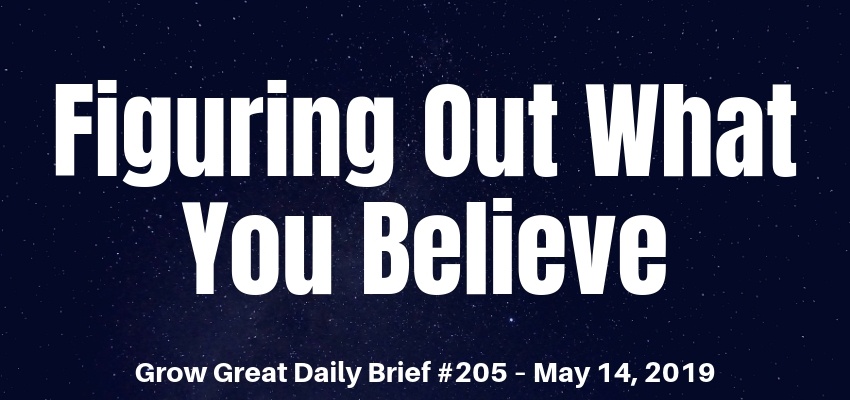

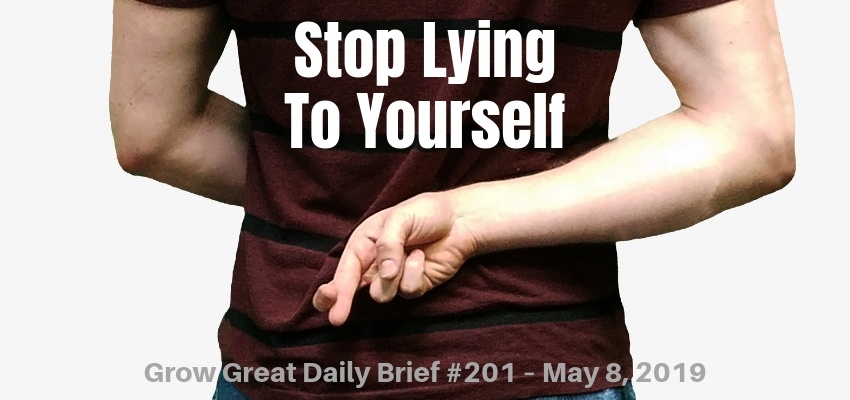
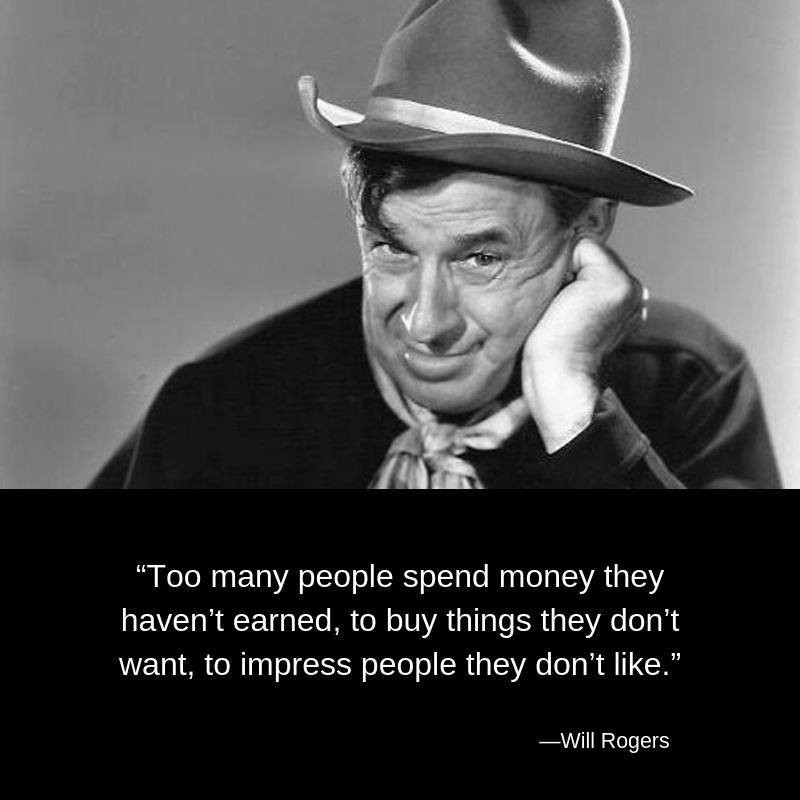
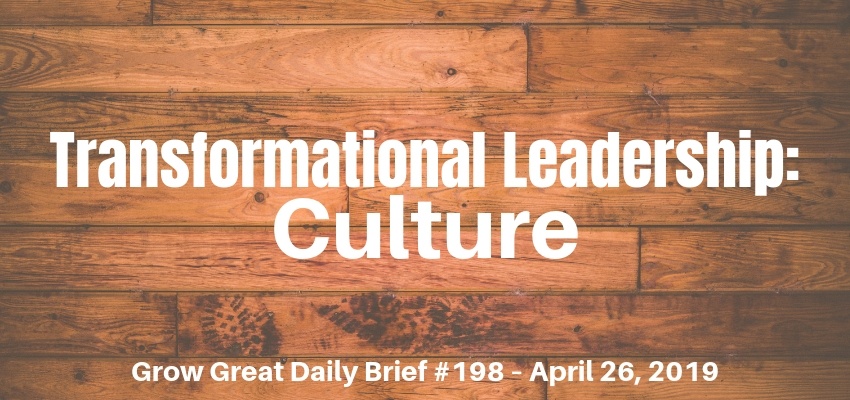
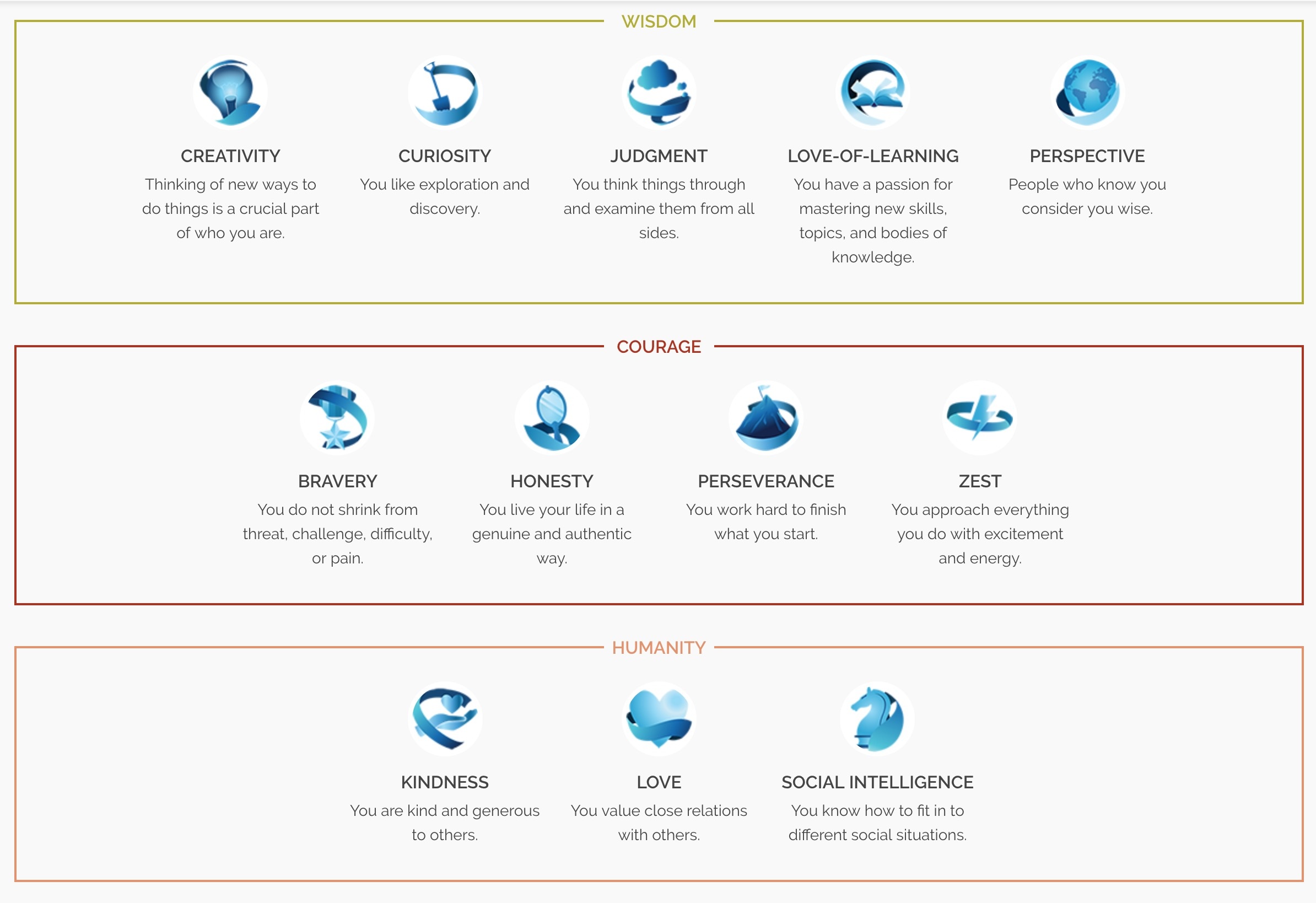
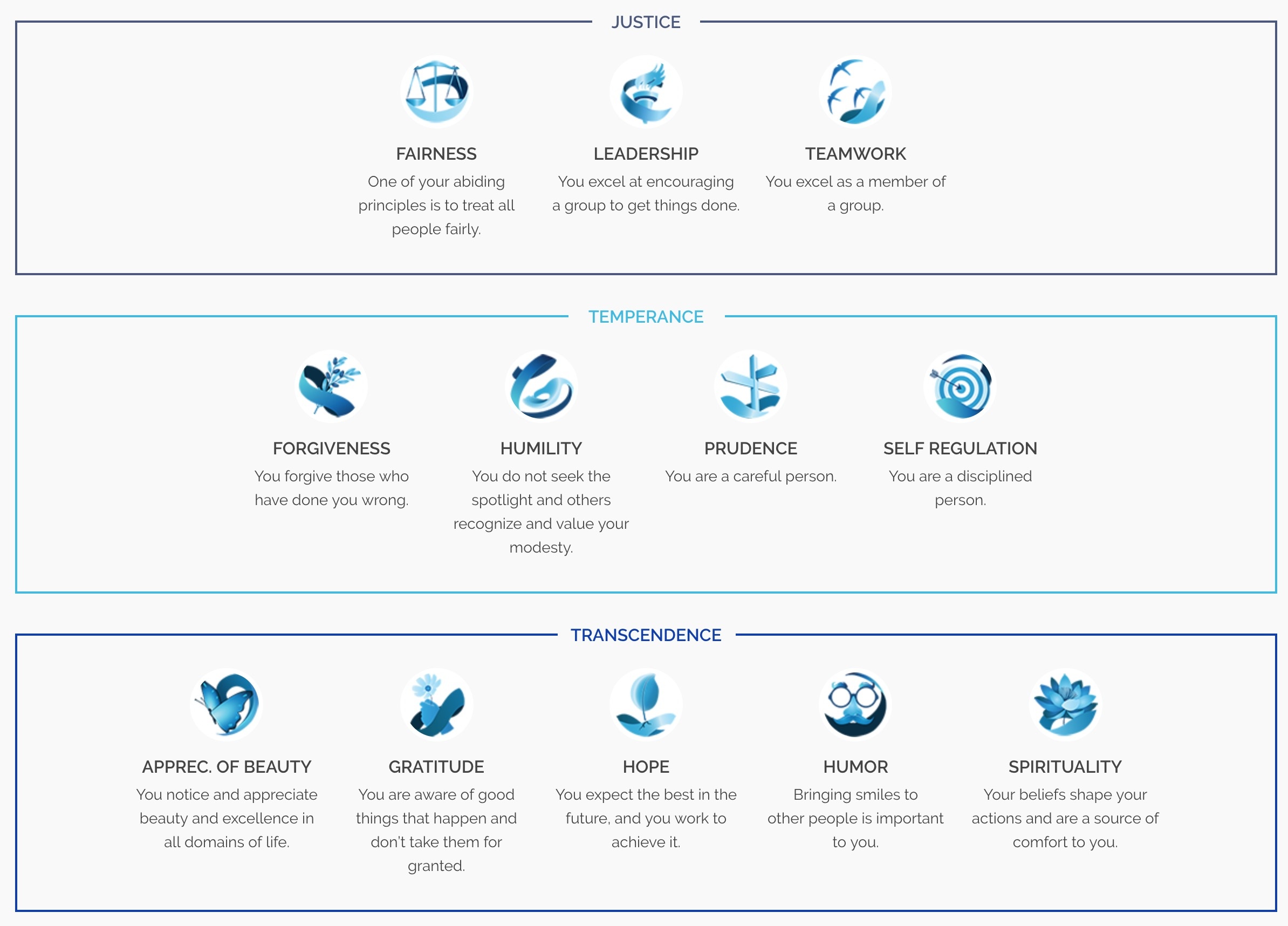
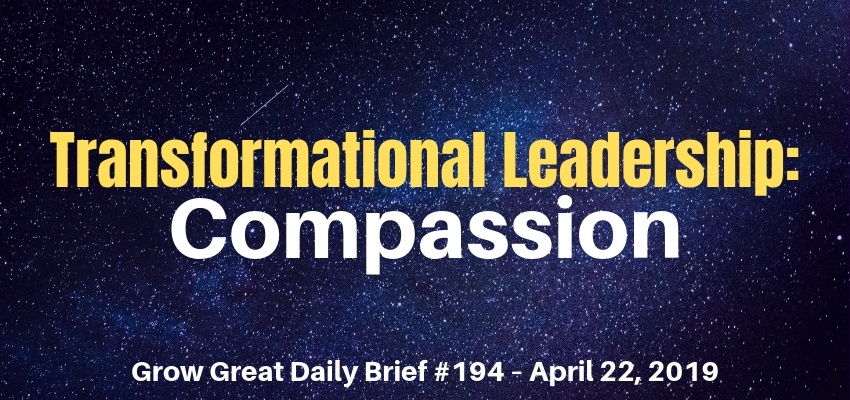

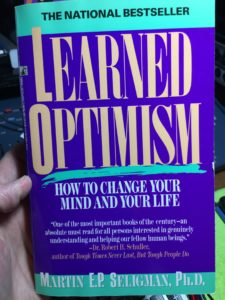 It was written by one Martin E.P. Seligman, Ph.D. I knew I had to read it ’cause the author had TWO middle initials. E.P. stands for Elias Pete by the way. That actually had nothing to do with my buying the book, but I found it interesting nonetheless.
It was written by one Martin E.P. Seligman, Ph.D. I knew I had to read it ’cause the author had TWO middle initials. E.P. stands for Elias Pete by the way. That actually had nothing to do with my buying the book, but I found it interesting nonetheless. There’s a chapter about kids. On January 25, 1992 I had my two kids take an assessment contained in the book. My kids were both under the age of 12. I’ve still got their answers, written in their own handwriting. It’s proof of how interested I was in helping my kids grow up to be optimistic.
There’s a chapter about kids. On January 25, 1992 I had my two kids take an assessment contained in the book. My kids were both under the age of 12. I’ve still got their answers, written in their own handwriting. It’s proof of how interested I was in helping my kids grow up to be optimistic.